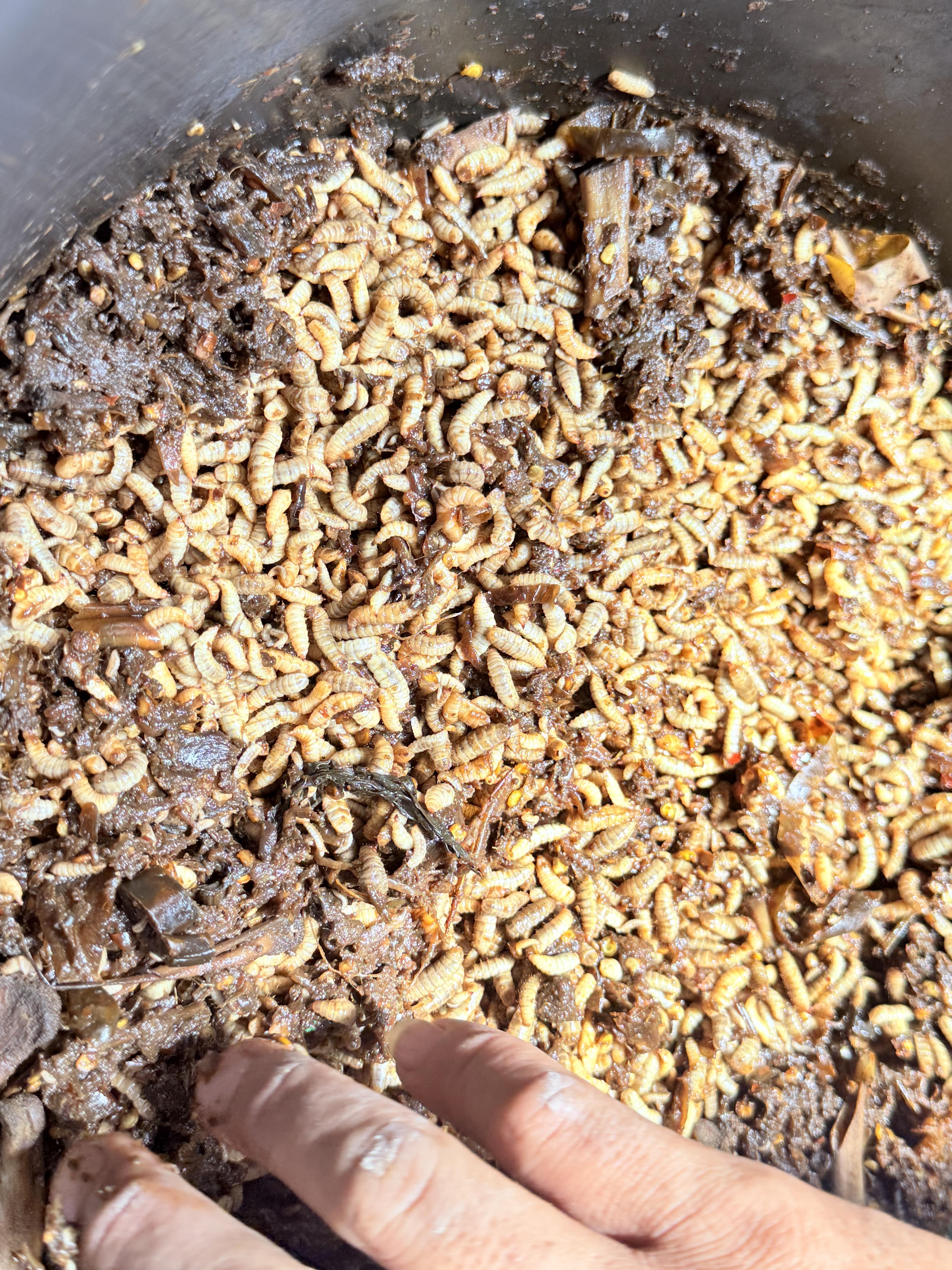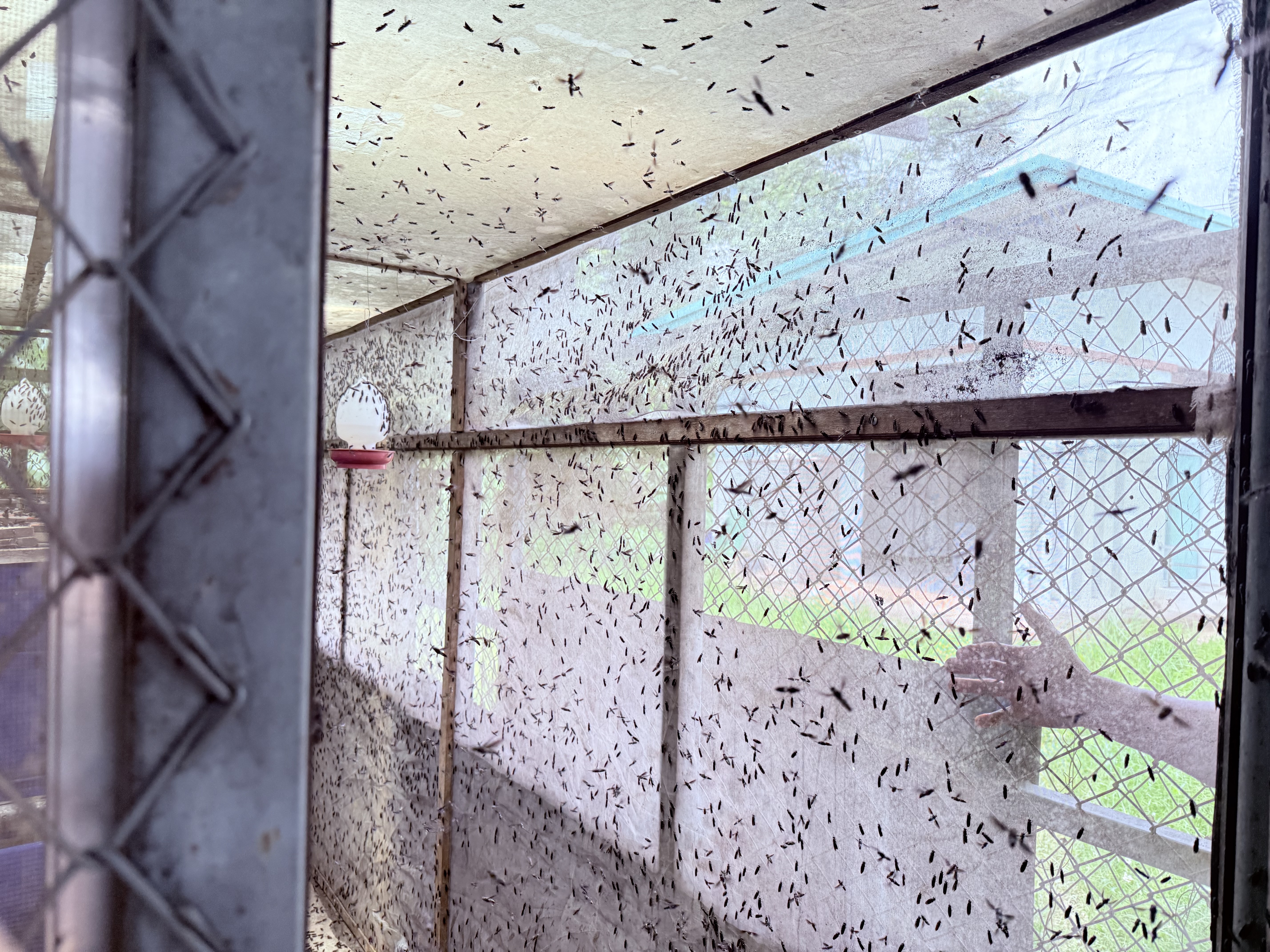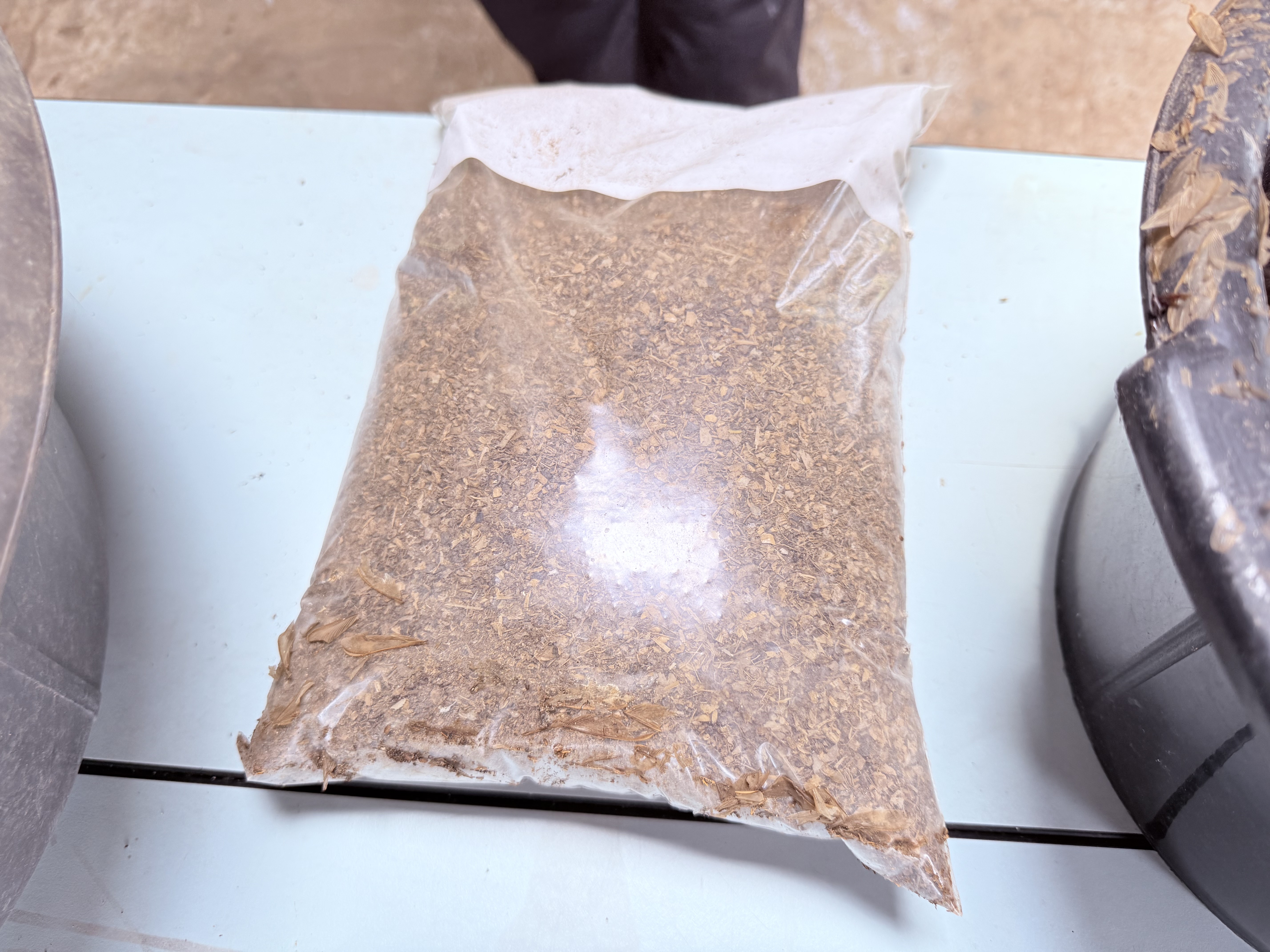Aquaculture, which involves raising aquatic species such as tilapia, catfish, and frogs, is currently experiencing a significant increase in feed costs. The cost of commercial feeds, which typically come in 20-kilogram bags, now ranges from 300 to 450 THB. As a result, farmers are being forced to look for more sustainable and cost-effective sources of protein. One potential solution that has shown promise is the Black Soldier Fly (BSF), an insect that contains up to 40% protein and can be used as feed for both aquatic and terrestrial animals.


According to Mr. Itsaram Saensupa, Scientist in Fisheries Technology, School of Agriculture and Natural Resources, University of Phayao, research on BSF began in 2019. The team utilized vegetable scraps and leftover food from university canteens as feed for larvae. The results were remarkable: BSF reduced aquaculture feed costs by up to 100% for certain fish species while simultaneously tackling the food waste problem.
Cultivation Methods
There are two main methods for rearing BSF:
- Collecting eggs from nature and using food waste to attract flies.
- Rearing in flight cages (closed housing system), which provide better environmental control. The larvae are typically grown for 18–20 days before being harvested as animal feed or transferred to flight cages for breeding.
(1).jpg)
Benefits and Business Opportunities:
BSF is highly suitable for carnivorous fish, such as catfish and snakehead, as well as poultry, ducks, geese, and ornamental birds, due to its high nutritional value and digestibility. This presents growing market both domestically and internationally. Current prices are as follows:
- Eggs: 10–20 THB per gram
- Live larvae: 80–150 THB per kilogram
- Pupae: 180–250 THB per kilogram
- Dried larvae: 200–400 THB per kilogram (internationally reaching 600–1,000 THB per kilogram)
BSF farming is not only a cost-saving solution but also part of a circular agriculture system that maximizes resource use. Food scraps once considered waste can be transformed into high-quality protein. Moreover, the residue from BSF farming can be used as organic fertilizer, enriching soil and reducing chemical inputs. This approach contributes to environmentally friendly and socially responsible agriculture.

Beyond reducing costs, BSF farming offers commercial potential, new income opportunities, and aligns with the Sustainable Development Goals (SDG 12) by promoting responsible consumption and reducing food waste.
Learning and Knowledge Sharing
The Sufficiency Economy Learning Center, Faculty of Agriculture, University of Phayao, welcomes visitors to learn about BSF farming—from egg collection and waste management to feed applications—free of charge.
📌 For more information, please contact:
Sufficiency Economy Learning Center
Faculty of Agriculture, University of Phayao
Tel. +66 54-466-666
Information provided by
Mr. Itsaram Saensupa,
Scientist in Fisheries Technology,
School of Agriculture and Natural Resources, University of Phayao